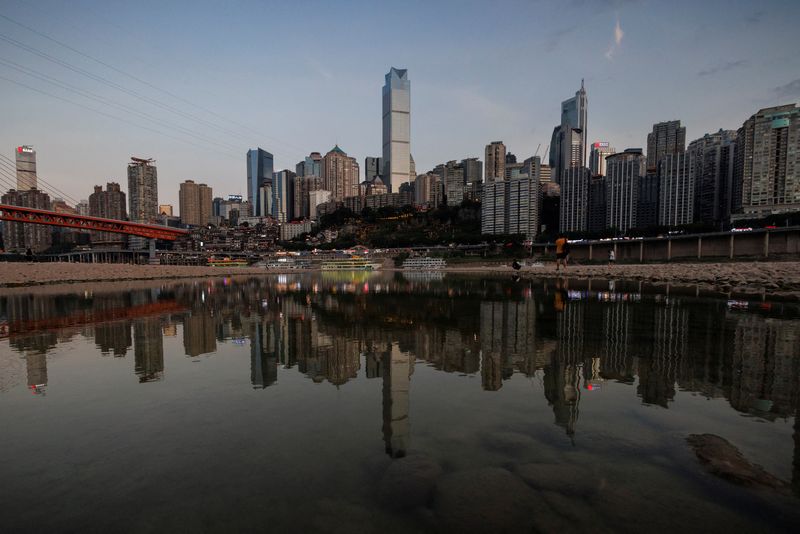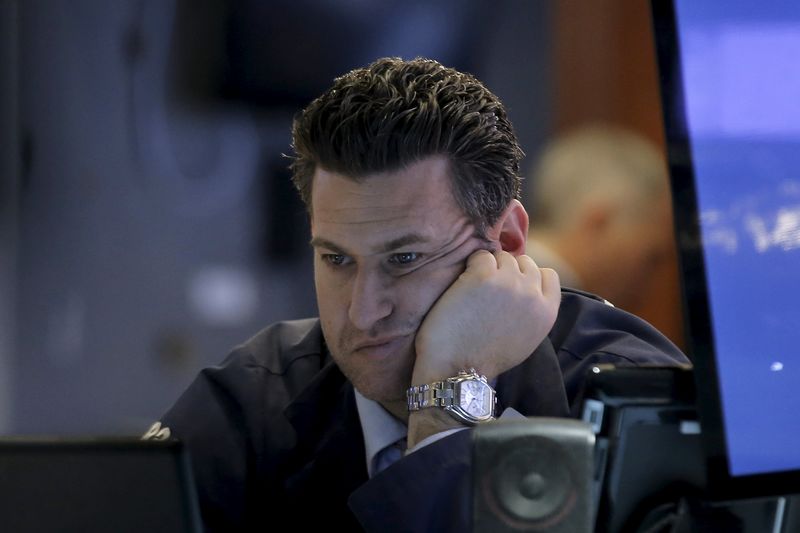By Bernadette Hogg, Ananya Mariam Rajesh and Helen Reid
GDANSK/BENGALURU/LONDON (Reuters) – Companies around the world are starting to cut prices and costs and scale back activity in China as the world’s second-largest economy continues to stagnate despite Beijing’s efforts to turn things around to turn.
Big names including Hermes, L’Oréal, Coca-Cola (NYSE:), United Airlines, Unilever (LON:) and Mercedes say Chinese customers are cutting back on spending as the property crisis continues and youth unemployment remains high.
Some are already changing their Chinese strategies.
French carbon graphite maker Mersen said last week it would close a powertrain products factory in China because it cannot compete with local rivals.
International food companies such as Danone and Nestle have now deepened price cuts or are trying to increase online shopping volume.
Coca-Cola CEO James Quincey said during an Oct. 23 earnings call that the business environment in China remains challenging.
“The economy isn’t really taking off,” he told investors.
China’s government has promised more aid, but the scope and timing of further stimulus are uncertain, and investors are so far unconvinced its efforts will boost the $18.6 trillion economy.
Some companies are still investing despite the recession.
Birkin handbag maker Hermes is offsetting lower traffic in China with higher average basket values, selling jewelry, leather goods and ready-to-wear for men and women.
After opening a store in Shenzhen last week, Hermes is planning a second opening in Shenyang in December and a flagship store in Beijing next year.
But for others, things in China have changed in the long term.
“We used to fly, I think, about 10 flights a day to China, and I think those days are over,” said Scott Kirby, CEO of United Airlines (NYSE:).
The company now has up to three flights per day from Los Angeles to Shanghai and does not expect that to change anytime soon.
“It’s just a completely different world,” Kirby added.
SOME THIRD QUARTER
The third-quarter earnings season, now in full swing, has led a series of business leaders to describe China’s difficult business environment.
Ermenegildo Zegna, chairman and CEO of the eponymous Italian luxury group, said he expects “challenging” times in China to continue at least until early 2025.
The luxury goods sector has borne the brunt of the downturn as economic uncertainty weighs on middle-class shoppers and makes even China’s wealthy more reluctant to spend.
LVMH, whose Chinese sales helped it become Europe’s largest company by market capitalization until last year, says consumer confidence in the country is at an all-time low.
With China’s massive Singles’ Day shopping event approaching, many local sellers are expecting flat or tepid sales growth at best. Consumers are still very discouraged by the country’s economic problems.
Heavy industry has also gone through a difficult period, which is expected to last for some time.
“So far I would like to emphasize that there is no recovery visible or in sight,” CEO Silvio Napoli said after Swiss elevator and escalator manufacturer Schindler reported quarterly sales on Oct. 17.
After returning from a trip to China earlier this month, Napoli said he had seen no sign that the market had bottomed out. China accounted for 15% of Schindler’s sales last year.
The CEO said he doesn’t see the stimulus measures as the “bazooka” the economy needs, but there may be more visibility in February, when the company reports full-year results.
WAIT GAME
It is still early in the earnings season, but expectations for companies with Chinese exposure were already low.
And there will be more potentially gloomy assessments to come, as only a small number of the hundreds of companies on the pan-European and US indices have reported so far.
“We’ve heard from a lot of companies that it’s much more of a cyclical slowdown than anything structural. So it’s a matter of waiting for that confidence to return, waiting for that stimulus to really kick in,” said Gillian Diesen, portfolio manager at Pictet Asset Management in Geneva.
That will depend on the Chinese government’s stimulus measures passing through to households and encouraging them to start throwing cash again.
“The government has clearly shown that it understands that the country has some major problems,” said Eric Clark, portfolio manager of the Rational Dynamic Brands Fund. “So far, their approach to fixing them seems akin to putting a few Band-Aids on catastrophic wounds.”
Companies also face other potential headwinds.
European carmakers and white goods makers such as Electrolux are struggling to compete in their home markets with Chinese rivals that can make and sell goods more cheaply.

Donald Trump has also threatened to impose 60% tariffs on Chinese goods if he wins the November 5 US presidential election, which could put enormous pressure on China’s industrial base.
This week, Brussels will impose tariffs of up to 35.3% on Chinese-made electric vehicles, further fueling a trade dispute with Beijing, which has launched its own retaliatory measures.


